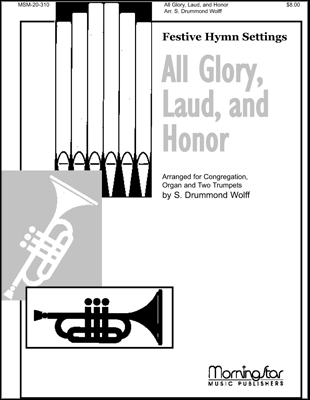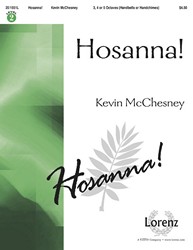- |
User Links
Ich weiß, wen an ich glaube, Ich weiß was fest besteht
Ich weiß, wen an ich glaube, Ich weiß was fest besteht
Author: Ernst Moritz Arndt (1819)Published in 50 hymnals
Audio files: MIDI
Representative Text
1 Ich weiß, woran ich glaube,
ich weiß, was fest besteht,
wenn alles hier im Staube
wie Sand und Staub verweht;
ich weiß, was ewig bleibet,
wo alles wankt und fällt,
wo Wahn die Weisen treibet
und Trug die Klugen prellt.
2 Ich weiß, was ewig dauert,
ich weiß, was nimmer läßt;
mit Diamanten mauert
mir's Gott im Herzen fest.
Die Steine sind die Worte,
de Worte hell und rein,
wodurch die schwächsten Orte
gar feste können sein.
3 Auch kenn ich wohl den Meister,
der mir die Feste baut,
er heißt der Herr der Geister,
auf den der Himmel schaut,
vor dem die Seraphinen
anbetend niederknien,
um den die Engel dienen;
ich weiß und kenne ihn.
4 Das ist das Licht der Höhe,
das ist der Jesus Christ,
der Fels, auf dem ich stehe,
der diamanten ist,
der nimmermehr kann wanken,
der Heiland und der Hort,
die Leuchte der Gedanken,
die leuchten hier und dort.
5 So weiß ich, was ich glaube;
ich weiß, was fest besteht
und in dem Erdenstaube
nicht mit als Staub verweht;
ich weiß, was in dem Grauen
des Todes ewig bleibt
und selbst auf Erdenauen
schon Himmelsblumen treibt.
Source: Antwort Finden in alten und neuen Liedern, in Worten zum Nachdenken und Beten: evangelisches Gesangbuch (Bayern, Mitteldeutschland, Thüringen) #357
Author: Ernst Moritz Arndt
 Arndt, Ernst Moritz, son of Ludwig Nicolaus Arndt, estate manager for Count Putbus, in the island of Rugen, was b. at Schoritz in Rugen, Dec. 26, 1769. After studying at the Universities of Greifswald and Jena, where he completed his theological course under Paulus, he preached for two years as a candidate, but in 1798 abandoned theology. After a pedestrian tour through South Germany, Hungary, Northern Italy, France, and Belgium, he became, at Easter 1800, lecturer at the University of Greifswald, and in 1805 professor of history there. But in 1806, lamenting over the tyranny of France, he wrote his fiery Gent der Zeit (pt. ii. 1809, iii. 1813, iv. 1818) which awakened the patriotism of his countrymen, but drew on him the hatred of Napoleon… Go to person page >
Arndt, Ernst Moritz, son of Ludwig Nicolaus Arndt, estate manager for Count Putbus, in the island of Rugen, was b. at Schoritz in Rugen, Dec. 26, 1769. After studying at the Universities of Greifswald and Jena, where he completed his theological course under Paulus, he preached for two years as a candidate, but in 1798 abandoned theology. After a pedestrian tour through South Germany, Hungary, Northern Italy, France, and Belgium, he became, at Easter 1800, lecturer at the University of Greifswald, and in 1805 professor of history there. But in 1806, lamenting over the tyranny of France, he wrote his fiery Gent der Zeit (pt. ii. 1809, iii. 1813, iv. 1818) which awakened the patriotism of his countrymen, but drew on him the hatred of Napoleon… Go to person page >Text Information
| First Line: | Ich weiß, wen an ich glaube, Ich weiß was fest besteht |
| Author: | Ernst Moritz Arndt (1819) |
| Language: | German |
| Notes: | English translation: "I know with full assurance" by R. Birch Hoyle; French translation: "Je sais en qui j'espere" by J. Vincent; Polish translation: "Wiem dobrze, w kogo wierzę" |
| Copyright: | Public Domain |
English
French
German
- Antwort Finden in alten und neuen Liedern, in Worten zum Nachdenken und Beten: evangelisches Gesangbuch (Bayern, Mitteldeutschland, Thüringen) #357
- Ausgewaehlte Psalmen und Lieder fuer kirchlichen und haeuslichen Gebrauch #d170
- Cantate Domino #75
- Das neue Gemeinschaftliche Gesangbuch, zum ... der Lutherischen und Reformirten Gemeinden in Nord-Amerika ... neuen Anhg. #d176
- Der Neue Kleine Psalter: Zionslieder für den Gebrauch in Erbauungsstunden und Lagerversammlungen #195
- Deutsche Gesangbuch fuer die Evangelisch-Lutherische Kirche in den Vereinigten Staaten Herausgegeben mit kirchlicher Genehmigung #d303
- Deutsches Gesang- und Choralbuch: eine Auswahl geistlicher Lieder ... Neue, verbesserte und verhmehrte Aufl. #a295
- Deutsches Gesangbuch fuer die evangelisch-lutherische Kirche in den Vereinigten Staaten. Verbesserte Ausg. #d293
- Deutsches Gesangbuch für die Evangelisch-Luterische Kirche in den Vereinigten Staaten: herausgegeben mit kirchlicher Genehmigung #384
- Deutsches Gesangbuch für die Evangelisch-Luterische Kirche in den Vereinigten Staaten: herausgegeben mit kirchlicher Genehmigung (22nd aufl.) #384 10 shown out of 47
Notes
Ich weiss, woran ich glaube. [The Rock of Salvation.] Written in 1818, and first published 1819 (No. 28) as above in 6 stanzas of 8 lines. In Knapp's Evangelischer Lieder-Schatz, 1837, No. 1396 (ed. 1865, No. 1348), it begins "Ich weiss, an wen ich glaube” The translations in common use are:—
- (1) I know in Whom I put my trust. A good translation of stanzas i., iv.-vi. of Knapp's text in the 2nd Series, 1858, of Miss Winkworth's Lyra Germanica, p. 162. Included as No. 1170 in Kennedy, 1863, and recently in Schaff’s Christ in Song, ed. 1879, p. 426, and Library of Religious Poetry, ed. 1883, p. 670.
(2) I know Whom I believe in, a translation from Knapp, omitting stanzas ii., iii-, as No. 288 in the Ohio Lutheran Hymnal, 1880.
- John Julian, Dictionary of Hymnology (1907)
Tune
[Auf dein Wort will ich trauen, mein Herr und Gott, allein]SELBORNE
ST. THEODULPH (Teschner)
Now often named ST. THEODULPH because of its association with this text, the tune is also known, especially in organ literature, as VALET WILL ICH DIR GEBEN. It was composed by Melchior Teschner (b. Fraustadt [now Wschowa, Poland], Silesia, 1584; d. Oberpritschen, near Fraustadt, 1635) for "Valet wi…


 My Starred Hymns
My Starred Hymns






